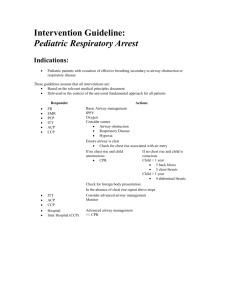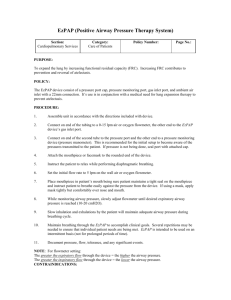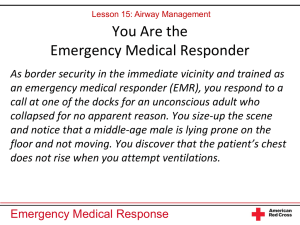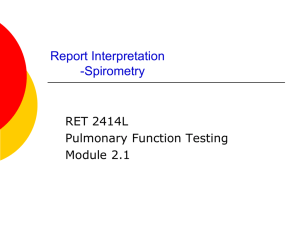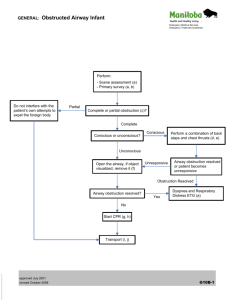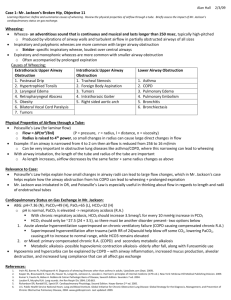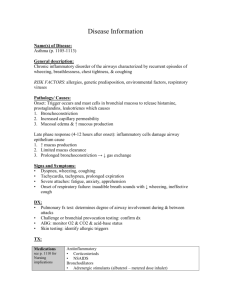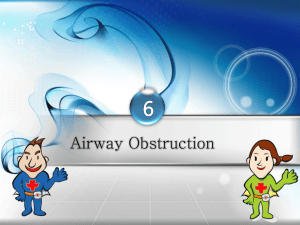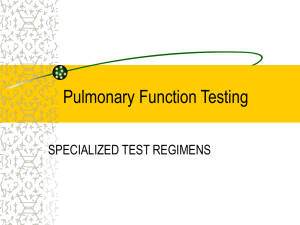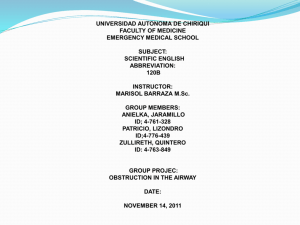IOS(3) - Ain Shams University
advertisement
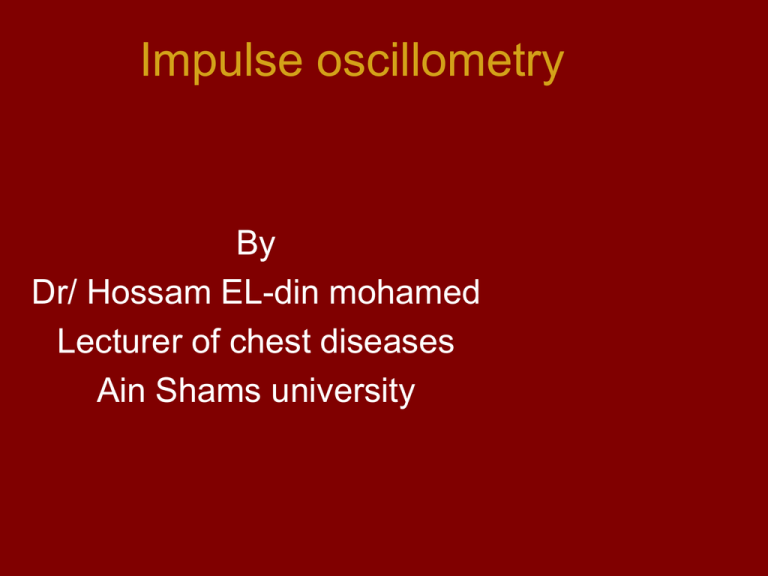
Impulse oscillometry By Dr/ Hossam EL-din mohamed Lecturer of chest diseases Ain Shams university Normal Peripheral Airway Obstruction Central Airway Obstruction Restrictive Lung Disease IOS • • • • • • • • Very simple to perform No special breathing necessary Minimal (no) co-operation Use with small children (down to 2 years) Even with animals No forced manoeuvre necessary No box necessary Peripheral and Central Resistance separated Limits of oscillometry • Detection of restrictive diseases is possible only in higher degree of the disease • Differentiation between distal obstruction and restriction is only possible with additional determination of VC (Spiromety) or RV (body Plethysmography) Recommendations • Patient: Sitting in upright position while measured Head in neutral position or slight extension (not in rotation or flexion) • Nose clipped • Cheeks supported with hands to avoid the "Upper Airway Shunt" To avoid artifacts in the mouth chamber: • Mouthpiece (plastic) tight between teeth, • Tongue beneath mouthpiece • Lips firmly closed around mouthpiece • (even small gaps create remarkable pressure drops and therefore low or zero resistance) • Take care on tight belts and clothes (increases peripheral resistance) Interpretation of IOS • R5 total airway resistance normal if Lower than 150% of R5 pred. R20 poximal airway resistance normal if Lower than 150% of R20 pred. X5 Distal capacitive reactance normal if Higher than X5 pred – 0.2 kps/l/s lung function is abnormal if either R5 or X5 or both parameters are in the abnormal range Assessment of bronchial hyperactivity R5 (50% increase = 20% decease of FEV1) Fres (40% increase = 20% decrease of FEV1) When 2 parameters pass threshold, terminate Assessment of bronchial hyperreactivity (Dilatation) R5 Total respiratory resistance (20-25% decrease = 15% increase of FEV1) Fres Resonant frequency (20 % decrease= 15% increase of FEV1) As soon as one of these two parameters passes the threshold, the patient is hyperreactive
